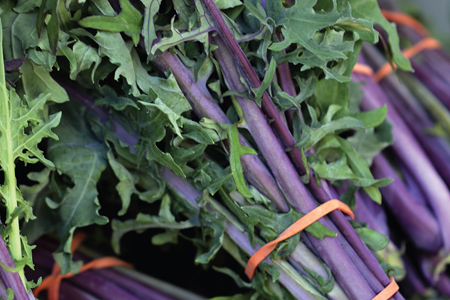Turning On The Juice
For a trimmer, more energetic tomorrow, drink your vegetables today

It shouldn’t surprise anyone that the word “juice” is sometimes used as a synonym for “power.” Done right, juicing—taking vegetables and fruits as a blended liquid—can concentrate a prodigious number of nutrients in a form that’s easily consumed and digested. “Juicing maximizes nutrients but minimizes the body’s efforts to break them down,” notes Chuck Secallus, part-owner of Asana House Juice Bar and Yoga Lounge in Montclair. Further, says Jason Manheim, author of The Healthy Green Drink Diet,“the body needs macronutrients and micronutrients to survive and flourish. Fruits and vegetables provide these in spades. You get carbohydrates from fruit, healthy fats from things like coconut and avocado, and even protein from green, leafy vegetables, as well as the vitamins, minerals and phytochemicals.” In addition to enhanced nutrition, proponents of juicing say it gives them more energy and focus, helps them sleep better, improves immune function and makes them feel happier overall.
What is juicing? Lately, juicing has become synonymous with cleansing—a juice-only regimen, usually done for a period of time that can range from a single day to several weeks, intended to rid the body of toxins like heavy metals and chemical additives or to jump-start weight loss. But juicing isn’t just about cleansing. For the purpose of weight loss, many people also substitute juice for one of their daily meals, and others add juice to their regular diets to get a nutritional boost. (Before you start juicing, whether as part of a cleanse or to enhance your diet, see your healthcare practitioner to make sure the approach is right for you.) Different juices, says Secallus, deliver different benefits—dark, leafy greens cleanse the liver, for instance, and aloe is effective for colon cleansing. “But it’s best to have a combination of a variety of fruits and vegetables, for both good health and good taste,” he advises.
Making the most of it. To get the weight loss benefits of juicing, you don’t need to go on a full cleanse, or even substitute juice for a meal. “If you drink a glass of vegetable juice as a late-afternoon snack or prior to a meal, it can make you feel full so that you eat less,” says Elizabeth DeRobertis, R.D., director of nutrition for the Scarsdale Medical Group. She recommends buying juice, or using a juicer, that retains pulp, so you get the benefits of fiber in addition to nutrients. And she cautions against relying heavily on fruit-only juices, which can be extremely high in sugar and calories (and can be downright dangerous for those with diabetes). On the other hand, if you’re changing out a meal for vegetable juice, make sure it’s delivering sufficient calories: “Two hundred or so calories per glass is about right,” DeRobertis says. She also warns against going too long without protein, a condition that can deplete muscle mass. “You can add protein to juice in the form of yogurt or ground nuts,” she suggests. And try to drink juice made from organic produce, since many of the most nutritious vegetables are also the most laden with pesticides.
How to love it. Okay, that big glass of all-green juice is crammed with vitamins, minerals and disease-fighting antioxidants. That doesn’t necessarily mean it’s going to excite your palate. If taste is stopping you from enjoying the benefits of juicing, start out with a fruit and vegetable combo, then gradually reduce the fruit. In time, most people’s palates adjust to the taste of an all-veggie juice.

